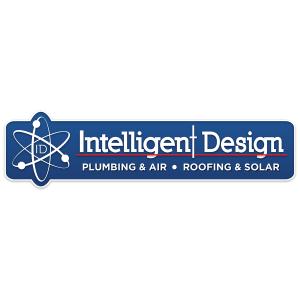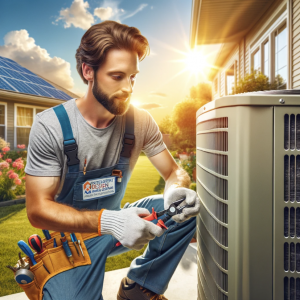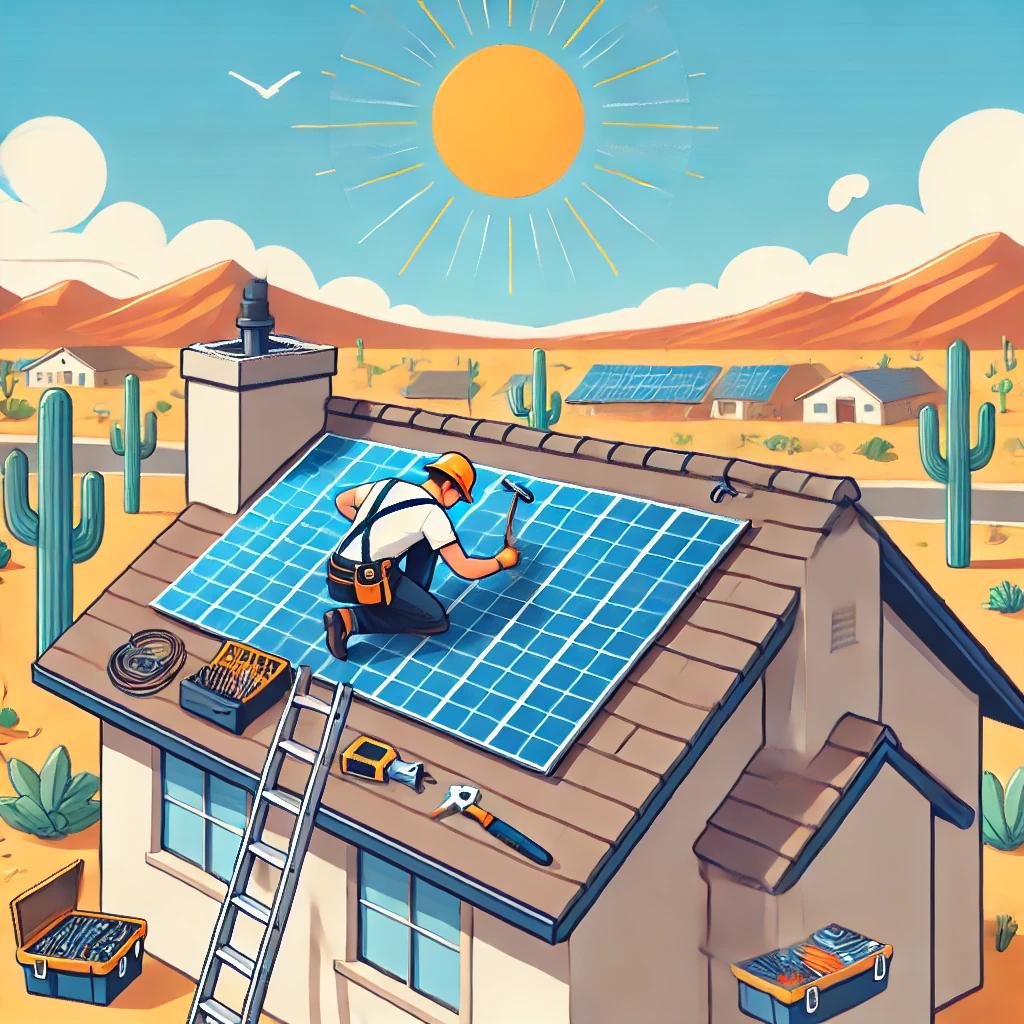The Importance of Air Conditioner Sizing: How to Choose the Right AC Unit for Optimal Comfort and Efficiency
Selecting the right size air conditioner is a key factor in achieving optimal cooling performance.
Intelligent Design Air Conditioning, Plumbing, Solar, & Electric, a leading HVAC service provider in Tucson, emphasizes the critical importance of selecting the correctly sized air conditioner (AC) unit for residential and commercial properties. Proper AC sizing is essential for maximizing comfort, improving energy efficiency, and extending the lifespan of the system.
Selecting the right size air conditioner is a key factor in achieving optimal cooling performance. An AC unit that is too large or too small can lead to a range of issues, including inefficient operation, higher energy bills, and increased wear and tear on the system.
Why Proper AC Sizing Matters
The size of an air conditioner is one of the most important considerations when purchasing a new unit. An incorrectly sized system can lead to a host of problems that affect not only comfort but also the long-term efficiency of the unit. An air conditioner that is too small will struggle to cool the space, while a unit that is too large will cycle on and off too frequently, leading to inconsistent temperatures and increased energy use.
1. Energy Efficiency
One of the primary reasons why proper AC sizing is essential is its impact on energy efficiency. A unit that is too small will run constantly in an attempt to cool the space, consuming excessive amounts of energy. On the other hand, a unit that is too large will cool the room too quickly, resulting in short cycling. This frequent turning on and off of the system is inefficient, causing higher energy bills and unnecessary strain on the system’s components.
By selecting the correct size AC, homeowners and business owners can ensure that their systems operate efficiently, using only the energy needed to maintain a comfortable indoor environment. This translates into significant savings on monthly energy bills and a reduced environmental impact.
2. Consistent Indoor Comfort
The goal of any air conditioning system is to maintain a consistent and comfortable indoor temperature. When an AC unit is too small, it will have difficulty keeping up with cooling demands, leaving hot spots and uneven cooling throughout the home or building. Conversely, an oversized unit will cool the space too quickly, without properly dehumidifying the air, leading to a cold, clammy feeling and fluctuating indoor temperatures.
Correctly sizing an AC unit allows the system to run for the appropriate amount of time to maintain a consistent, comfortable temperature while removing excess humidity. This results in a more enjoyable indoor climate during the hot summer months.
3. Reducing Wear and Tear
Air conditioning units that are either too large or too small for the space are more prone to excessive wear and tear. Units that run continuously due to being undersized are at higher risk for component failure, while oversized units that frequently cycle on and off put undue stress on parts like compressors and fans. This can lead to frequent breakdowns, costly repairs, and even early system failure.
Properly sized AC units run more smoothly, avoiding the strain caused by improper cycling and extended run times. This helps extend the lifespan of the unit, saving homeowners the cost of premature replacement and repair services.
Andrew Dobbins, owner of Intelligent Design Air Conditioning, Plumbing, Solar, & Electric, emphasizes the importance of correctly sizing air conditioning systems. "Choosing the right size air conditioner is crucial for energy efficiency, indoor comfort, and system longevity. A well-sized system will provide consistent cooling, lower energy costs, and minimize the need for frequent repairs. It’s an investment that pays off in the long term," said Dobbins.
Key Factors to Consider When Sizing an AC Unit
Several factors determine the proper size of an air conditioning system. It’s not just about the square footage of a home or building—there are many variables to consider when sizing an AC unit. Intelligent Design Air Conditioning, Plumbing, Solar, & Electric recommends professional load calculations to ensure that the right system is chosen for each unique property.
1. Square Footage
The size of the space being cooled is one of the most obvious factors when sizing an air conditioner. Larger spaces require more cooling power, while smaller areas need less. However, square footage alone is not enough to determine the correct size. Additional factors must be taken into account for an accurate calculation.
2. Ceiling Height
Homes and buildings with high ceilings require more cooling capacity than those with standard ceiling heights. The volume of air that needs to be cooled increases with the height of the ceiling, which affects the overall demand on the AC system.
3. Insulation
The quality and amount of insulation in a building play a significant role in determining the proper AC size. Well-insulated homes retain cool air more effectively, reducing the need for a larger unit. On the other hand, homes with poor insulation may need a more powerful system to compensate for air loss through walls, ceilings, and windows.
4. Windows and Sun Exposure
The number, size, and type of windows in a home, as well as the amount of direct sunlight the property receives, can impact cooling needs. Rooms with large windows or southern and western exposure often require more cooling power due to the heat that enters through the glass.
5. Climate and Local Conditions
The local climate also influences AC sizing. Homes in hot and dry climates like Tucson may require more cooling capacity compared to homes in more temperate regions. Humidity levels should also be considered, as systems in more humid areas need to be able to manage moisture as well as temperature control.
6. Occupancy and Usage Patterns
The number of people living or working in the space, as well as the way the space is used, impacts cooling needs. Homes with large families or commercial properties with high occupancy rates generate more heat, which places additional demand on the AC system. Additionally, spaces with heat-generating appliances, such as kitchens, may require larger units to maintain comfort.
The Role of Professional Load Calculations
To ensure the proper sizing of an air conditioning system, Intelligent Design Air Conditioning, Plumbing, Solar, & Electric recommends scheduling a professional load calculation. This calculation takes into account all the factors that affect cooling demand, providing an accurate estimate of the system size needed to maintain consistent comfort and efficiency.
A professional HVAC technician will use advanced software to perform the calculation, ensuring that all relevant variables are considered. This process helps avoid the common mistake of choosing an AC unit based solely on square footage, which can lead to oversized or undersized systems.
The Environmental Impact of Properly Sized AC Systems
1. Reduced Energy Consumption and Lower Greenhouse Gas Emissions
Heating, ventilation, and air conditioning (HVAC) systems are among the largest consumers of energy in the home, especially during peak summer months. When an AC system is too large or too small for the space it serves, it tends to run inefficiently. Oversized units cycle on and off too frequently (a process known as short cycling), which leads to increased energy consumption because the unit cannot run at its most efficient capacity. On the other hand, undersized systems run for extended periods without adequately cooling the space, again leading to wasted energy. Both scenarios contribute to unnecessary electricity use.
Energy use from HVAC systems2 translates directly into greenhouse gas emissions, particularly in regions where electricity is generated from fossil fuels. Power plants that rely on coal, oil, or natural gas release carbon dioxide (CO2) and other harmful pollutants into the atmosphere. By reducing the amount of electricity used to cool a home, properly sized AC units help curb the demand for energy production and, as a result, lower CO2 emissions. This reduction in emissions plays a crucial role in mitigating the impact of climate change.
2. Improved System Efficiency and Sustainability
A properly sized air conditioning system operates more efficiently because it is tailored to meet the exact cooling needs of a space. This efficiency translates into several environmental advantages. First, the system doesn't have to work harder than necessary to maintain comfortable indoor temperatures. By optimizing how long the AC runs and how effectively it cools, a correctly sized unit consumes less electricity than an improperly sized one.
Energy-efficient air conditioning units often meet or exceed ENERGY STAR® guidelines, which are designed to promote energy savings and environmental protection. When paired with high-efficiency components such as variable-speed motors or smart thermostats, these systems can significantly reduce energy consumption. Over time, the cumulative environmental benefits of widespread adoption of properly sized, energy-efficient AC systems3 can be substantial.
3. Efficient Humidity Control and Improved Indoor Air Quality
One of the often-overlooked environmental impacts of air conditioning is the management of indoor humidity. In addition to cooling the air, air conditioners dehumidify the indoor environment, removing excess moisture from the air as it passes through the system. When an air conditioner is too large, it cools the space too quickly without running long enough to remove the appropriate amount of humidity. This can lead to damp indoor conditions, which can create an environment conducive to mold and mildew growth—an issue that can be harmful to both the home’s structure and the health of its occupants.
Mold spores and indoor allergens thrive in high-humidity environments, which can lower indoor air quality and contribute to respiratory problems. An AC unit that is properly sized, however, will run for longer, steady periods, allowing it to effectively dehumidify the air. This process not only improves indoor comfort but also prevents moisture-related issues that could lead to damage and the need for more energy-intensive repairs or renovations in the future.
By maintaining better indoor air quality through optimal humidity control, a well-sized AC system promotes a healthier living environment. This, in turn, reduces the demand for other energy-intensive solutions, such as dehumidifiers or air purifiers, thus contributing to a more energy-efficient household.
4. Lower Demand for Replacement Parts and Repairs
Air conditioning systems that are either too large or too small for a given space tend to wear out more quickly than properly sized systems. Frequent short cycling (in the case of oversized units) or constant operation (in the case of undersized units) places additional strain on the unit’s mechanical components. Compressors, fans, motors, and other parts are more likely to fail under these conditions, leading to an increased need for repairs and replacement parts.
Not only does this frequent need for maintenance drive up costs, but it also has an environmental impact. The production, transportation, and disposal of replacement parts contribute to resource depletion and greenhouse gas emissions. Additionally, improperly functioning systems often require technicians to make frequent service visits, further increasing the carbon footprint associated with their upkeep.
By choosing a properly sized AC system that operates efficiently and with minimal strain, homeowners can significantly reduce the need for repairs, decreasing their reliance on new parts and services. This longer lifespan means fewer materials are used over the lifetime of the unit, reducing waste and the associated environmental impact.
5. Compatibility with Renewable Energy Sources
As more homeowners seek to transition to renewable energy sources like solar panels, having an energy-efficient, properly sized AC unit becomes even more advantageous. Solar power systems generate a finite amount of electricity based on the number of panels installed and the sunlight available. By reducing the overall energy demand of the home’s cooling system, homeowners can make better use of the renewable energy they produce.
Properly sized, high-efficiency AC systems allow homeowners to maximize the benefits of their solar installations by ensuring that less electricity is needed to maintain comfortable indoor temperatures. This makes it more feasible for homeowners to run their entire household on clean, renewable energy, reducing their reliance on fossil fuel-based grid electricity.
6. Reduced Heat Island Effect in Urban Areas
In densely populated urban areas, where air conditioners are widely used, improperly sized or inefficient HVAC systems can contribute to the heat island effect. This phenomenon occurs when buildings, roads, and other infrastructure absorb and retain heat, causing urban areas to become significantly warmer than their rural counterparts. The increased use of energy-intensive cooling systems in these areas exacerbates the problem by releasing waste heat into the surrounding environment.
By selecting properly sized, energy-efficient AC units, homeowners and businesses in urban areas can help mitigate the heat island effect. More efficient systems produce less waste heat, and by consuming less electricity, they reduce the overall demand on the local power grid during peak usage times, such as hot summer days.
Contact Information and Further Assistance
For help with HVAC system selection, installation, and maintenance, contact Intelligent Design Air Conditioning, Plumbing, Solar, & Electric. Their team of experts is ready to provide tailored solutions for every home.
To learn more or schedule a consultation, visit Intelligent Design’s website at www.idesignac.com or call their office at (520) 333-2665.
About Intelligent Design Air Conditioning, Plumbing, Solar, & Electric
Intelligent Design Air Conditioning, Plumbing, Solar, & Electric is a leading provider of HVAC, plumbing, solar, and electrical services in Tucson, AZ. With a commitment to quality, efficiency, and customer satisfaction, the company offers a wide range of services designed to meet the diverse needs of residential and commercial clients. Their team of licensed professionals is dedicated to delivering exceptional service and innovative solutions.
Intelligent Design, under the leadership of Andrew Dobbins, a Marine Veteran renowned for his extensive expertise, has become synonymous with reliability, cutting-edge innovation, and unparalleled excellence in the HVAC sector. Established in Tucson, AZ, the company has flourished as a symbol of exceptional service, unwavering customer satisfaction, and a steadfast commitment to environmental stewardship. It remains the top choice for homeowners in search of efficient, affordable, and outstanding AC Tune Up solutions.
The team is rich in experience, bringing an average of 12 years per technician to every project, whether it involves AC Repair in Tucson, HVAC, plumbing, solar, roofing, electrical services, or a combination of these. This depth of experience enables us to provide a comprehensive range of vital services, including air conditioning repair and installation, emergency heating services, and solutions for indoor air quality, catering to both residential and commercial clients in the Tucson area.
Proudly recognized as the highest-rated AC Tune up company in Southern Arizona, Intelligent Design is constantly striving to enhance and expand their service offerings. Their recent foray into roofing services has further cemented their status as not just the leading HVAC provider in Tucson but also as the top roofing company in the region. The extensive array of services now includes HVAC, Plumbing, Solar, Electrical, and Roofing, making us a comprehensive solution provider for all home service requirements.
Before you Google, “AC Repair Near Me1”, search Intelligent Design the AC Tune Up Specialists in Tucson, AZ.
Andrew Dobbins
Intelligent Design Air Conditioning, Plumbing, and Solar
+1 520-333-2665
email us here
Visit us on social media:
Facebook
1 https://idesignac.com/air-conditioning/ac-repair-tucson/
2 https://idesignac.com/air-conditioning/ac-installation-tucson/
3 https://idesignac.com/solar-tucson/home-energy-audit-consultant-tucson/




